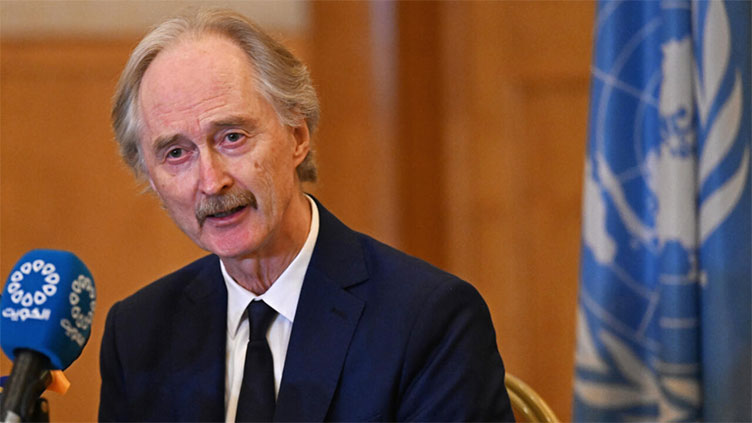UN envoy warns Syria against retribution campaign

World
UN envoy said he was assured by authorities "that there is no policy of revenge or retribution".
UNITED NATIONS (United States) (AFP) – The United Nations envoy for Syria on Wednesday called on its new authorities to prevent a "cycle of retribution and revenge" after the overthrow of the brutal rule of Bashar al-Assad.
At a Security Council meeting, Geir Pedersen spoke of worrying reports of "men killed in the exchange of fire and reported serious ill-treatment in detention" taking place under the country's transitional authorities.
He lamented reports of "kidnapping, looting, expropriation of property, and forced evictions of families from public housing."
Assad was overthrown in December by rebel forces led by the Islamist group Hayat Tahrir al-Sham, whose leader Ahmed al-Sharaa is now the country's interim president.
Pedersen said he was assured by authorities "that there is no policy of revenge or retribution" and noted that hundreds of detainees have been released from prison.
He warned, however, "there is still lack of clarity on the due process of those detained."
Pedersen said it was "the responsibility of the caretaker authorities" to ensure rights violations ceased and "to work on a comprehensive transitional justice framework."
Despite reassurances from Syria's new rulers, members of Assad's Alawite community -- a branch of Shiite Islam -- fear reprisals because of the minority's link to the former ruler's family.
Assad's family ruled the country for more than five decades.
Since his ouster, violence against Alawites has soared, with a leading watchdog recording more than 160 killings.
Pedersen, who was recently in Syria, also noted the concern of many residents regarding "discriminatory practices against women and of increasing social pressure towards certain norms."
The UN officials welcomed recent "decisions and signals" from the United States and the European Union regarding the easing of sanctions against Syria, adding that "a credible transition will be essential to continuing and expanding positive and bold sanctions moves."
"Let us remember that the challenges Syria faces are myriad and immense, including an ongoing conflict, a fragmented security landscape, a battered economy, and a population emerging from fourteen years of war in a situation of great hope but also division too," Pedersen concluded.


